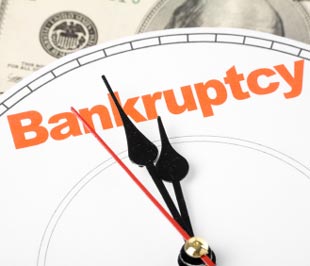Law on Bankruptcy 2014 and New Beneficial Points for Enterprises (Part 3)
Our country is in the process of international integration, with large enterprises increasingly developing, while small enterprises face losses and are excluded from the business market, which is a common occurrence. To address these issues and create favorable conditions for small enterprises to integrate into the current development process, the Bankruptcy Law 2014 has added many new provisions that benefit enterprises. Below are some new regulations in this law.

Assets of insolvent enterprises, cooperatives:
The assets of insolvent enterprises and cooperatives include: Assets and property rights that the enterprise or cooperative has at the time the People's Court decides to initiate bankruptcy procedures. Previously, this was at the time the Court accepted the petition to initiate bankruptcy procedures.
Assets and property rights obtained after the People's Court issues the decision to initiate bankruptcy procedures. Assets recovered from acts of concealing, disposing of assets of the enterprise, cooperative. Assets and property rights obtained from the recovery of invalid transactions. Other assets according to the provisions of the law. Previously, there were no such provisions (Article 64).
Registration of secured transactions of insolvent enterprises:
Enterprises and cooperatives that are insolvent and lend assets to others, which by law must register secured transactions but have not yet registered, must immediately perform such registration. If the enterprise or cooperative does not comply, the asset management and liquidation officer, asset management enterprise must perform the registration of secured transactions. Previously, there were no such regulations (Article 69).
Duties of the bank where the enterprise or cooperative has an account:
From the date the People's Court issues a decision to declare the enterprise or cooperative bankrupt, it is prohibited for the bank where the declared bankrupt enterprise or cooperative has an account to make payments on the debts of the bankrupt entity, except for cases with written consent from the People's Court or the civil enforcement agency. Previously, there was also a prohibition on any act aimed at offsetting or paying the loans of the enterprise or cooperative to the bank (Article 73).
Principles for conducting the Creditors' Meeting:
Respect the agreement of participants in the bankruptcy proceedings, provided the agreement does not violate prohibitions of the law and social morals. Ensure equality in the rights and duties of participants in the bankruptcy proceedings. Ensure transparency in conducting the Creditors' Meeting. Previously, there were no such regulations (Article 76).
Suspension of bankruptcy proceedings:
From the date the People's Court issues a decision to initiate bankruptcy proceedings until before declaring the enterprise or cooperative bankrupt, if the enterprise or cooperative is not insolvent, the People's Court will issue a decision to suspend the bankruptcy proceedings. The enterprise or cooperative must refund the bankruptcy advance payment to the petitioner, except in cases where the petitioner for opening bankruptcy procedures is dishonest. The decision to suspend bankruptcy proceedings must be sent to the petitioner, the insolvent enterprise or cooperative, creditors, the same level People's Procuracy, civil enforcement agency, tax authority, and the business registration office where the enterprise or cooperative has its principal office within 03 working days from the issuance date.
Within 15 days from the receipt of the decision, participants in the bankruptcy proceedings have the right to request a review, and the same level People's Procuracy has the right to petition the Chief Justice of the People's Court handling the bankruptcy procedures about the suspension decision. Previously, proceedings were only suspended if there were absent participants at the Creditors' Meeting (Article 86).
Recognition of the resolution of the Creditors' Meeting:
From the date this resolution takes effect, the prohibitions and supervision of business activities of the enterprise or cooperative stipulated in Article 48 and Article 49 of this Law shall terminate. Previously, there were no such regulations (Article 92).
Suspension of business recovery procedures:
The judge issues a decision to suspend the business recovery procedures of insolvent enterprises or cooperatives if falling into one of the following cases: The enterprise or cooperative has completed the business recovery plan. The enterprise or cooperative cannot implement the business recovery plan. The time limit for executing the business recovery plan has expired but the enterprise or cooperative remains insolvent.
The People's Court publicly announces the decision to suspend the business recovery procedures of the enterprise or cooperative according to the provisions in Clause 1, Article 43 of this Law. Previously, there were only two cases of suspension: when the enterprise or cooperative has completed the business recovery plan and when more than half of the non-secured creditors representing 2/3 or more of the total outstanding unsecured debt agree to suspend (Article 95).
(To be continued)
Source: Binh Phuoc Online
- Regulations on management, operation, and use of the online video conferencing system of the State Audit Office of Vietnam
- Content and format of the recruitment examination for officials of the People's Procuracy in Vietnam
- Types of officials recruited to work in the People’s Procuracy sector in Vietnam
- Conditions for re-registration of birth, marriage, and death in Vietnam
- Procedures for issuance of a Decision to recognize or not recognize successful mediation and dialogue results at the Court in Vietnam
- Regulations on handling of printed and self-printed receipts in cases of loss, fire, or damage in Vietnam
-

- Notable documents of Vietnam in the previous week ...
- 17:22, 11/12/2024
-

- Promulgation of Circular amending Circulars on ...
- 15:50, 11/12/2024
-

- Procedures for declaration and payment of environmental ...
- 15:19, 11/12/2024
-

- Directive on intensifying the work of waste prevention ...
- 15:13, 11/12/2024
-

- Prime Minister of Vietnam requests to intensify ...
- 12:00, 11/12/2024
 Article table of contents
Article table of contents
